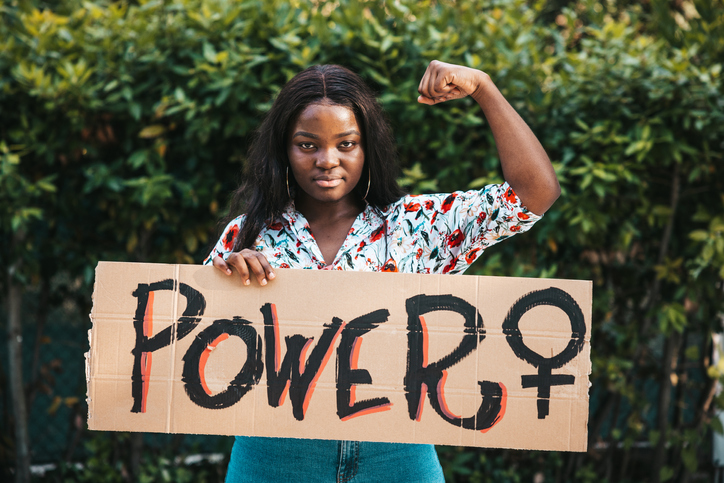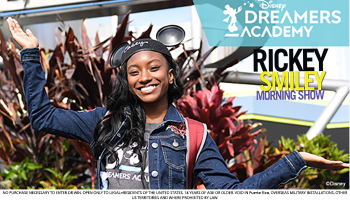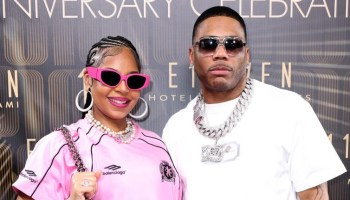The Ethics of Living #MeToo: An Autobiographical Sketch
1.
My first lesson in how to live as a vulnerable Black woman came when I was quite small. We, my mother and I were living at 1450 Greenport road in Far Rockaway, Queens. My mother walked differently from other mothers—slow—dragging her left foot behind the right as she took simple steps. I, on the other hand, walked swiftly. At about five years old, I ripped and ran the hallways and stairwells with all the other kids my age. Our parents chilled in front of the building, smoked joints, shared packs of Kool 100s, sipped Colt 45 malt liquor. I played mostly with Adrian. I remember her being not quite Black and kinda Puerto Rican. Today, she’d be considered a Brown girl. Dark curls fell at her jawline. She was small for seven years, and matched my height and weight at fiveish. Our independent spirit matched as well. We rode elevators alone; checked mailboxes alone; spent time in lonely apartments till our mothers chose to come home. I bumped into Adrian often as we dragged garbage bags to dusty closets and stuffed them down the incinerator shoot. Together, we walked along Cornaga avenue to the corner store to replace boxes of cigarettes, milk, loaves of bread. On Sundays, we played hopscotch in the courtyard—until we didn’t. I thought maybe I said something that had hurt Adrian’s feelings, perhaps something I did. Perplexed by her absence, I walked from the courtyard after a long wait, believing I’d lost my only friend, planning to beg her forgiveness for whatever I had done. That night, Adrian was reported missing. On May 24, her body was found stabbed and stuffed in a plastic garbage bag, placed in the courtyard. Bruce Bostick, a next door neighbor who lived in an apartment between ours, lured Adrian into his home while his wife and daughter were out. He sexually assaulted Adrian—then silenced her forever.
2.
My #MeToo education continued at our next address, which was a step down from the previous apartment. We were living in a small one-bedroom in Jamaica, Queens, on 88th Avenue. Our apartment building stared at the back of Sutphin Supreme Court. On any given day, you could look over and see imprisoned bodies, chained and shackled to one another, at the waist and wrist, being led into the stately building for court appearances. It was my seventh birthday, though, it felt more like my seventeenth. I was older according to the calendar but even more so in the way life situates you in circumstance. My mother became fully paraplegic. She went from walking with plastic braces that cradled the heels of her feet and buckled twice around her thick calves, to using metal crutches; then a folding walker; and eventually rotating the wheels of a wheelchair. As her mobility slowly decreased, my responsibility rapidly increased. That morning, I woke with the August heat tanning my young Black back and looked over at my mother’s bed and found her smiling back at me.
I jumped up out of bed, leaped into my mother’s chunky arms. She tickled me, squeezed me and planted birthday kisses across my face and forehead.
“Get yourself some cereal then get yourself together,” she whispered.
I shook the last bit of Frosted Flakes into a bowl and softened their crisp with canned milk. I wolfed down breakfast, I bathed, brushed my teeth, dressed, and returned to my mother’s bedside. Where she was sitting upright, legs stock-still and hanging over the side of the bed. She twisted her flanks and reached for her cigarette purse which rested among an assortment of pill bottles. She pulled a $20 bill and tucked it into my palm then folded my fingers around it.
“Don’t lose it” she said
“I won’t”
In fact, i gripped that money with all my seven-year-old might as i trekked along Jamaica Avenue and beneath the J train that rattled on the tracks overhead on my way to the Woolworth on 165th Street. Potential purchases danced in my head as i perused the aisles of the infamous five and dime. i fancied myself with the tropical fish that swam every which way across the blue backlight of the fish tank. i picked up puzzles and placed them back on shelves. i priced a pair of roller skates against the currency in my pocket. A dub wasn’t enough so they stayed. As i bent over to inspect board games that rested on shelves closest to the floor, i felt the coolness of a six foot shadow creep over my shoulder, and the warmth of its adult body brushing itself up against my seven-year-old physique. Stiffness pressed into my backside. When i stood up the shadow retreated. i did the same into another toy aisle. i busied myself in the doll section where there were an array of dolls that were light and bright with contoured faces and stringy blonde hair. They looked nothing like the round face, pudgy nose or plump lips that appeared in mirrors i passed by. Still, i entertained them until the chill of that shadow eased up from the left of me pretending it, too, was entertained by dolls that had more in common with it than me.
“Pick the doll you want,” its voice optioned. “I’ll buy it for you.”
For a minute, i thought about the all-white roller-skates with colorful pom-poms. i scurried to the next aisle. Out the corner of my eye, i could see the shadow shadowing me, while i fake shopped, from the opposite end, and again as i moved to another aisle, and another. i made a mad dash to the lunch counter and sat down between two women deep in conversation.
“You alright, sweetie?” One of them asked. i locked eyes with them then looked away.
“Is everything OK?” The other asked. “Where’s your mama?”
“She’s at home in a wheelchair,” i answered. “It’s my birthday. She sent me to the store … and this shadow keeps—”
i hushed my mouth mid-sentence as i locked eyes with the passing shadow. Both women locked eyes with one another. They seemed to recognize the grin, the darkness in the shadow that floated by. The younger of the two women, grabbed my hand in hers and squeezed tightly.
“Let’s order this baby a slice of strawberry shortcake and a vanilla shake with whip cream and a cherry on top.” She said.
“Let’s get this baby home.” Said the other.
3.
I was learning quite fast, but not quite fast enough. We were poor, my mother and I, but no poorer than the people and conditions that surrounded us. We fit in—and collected welfare dollars and books of colorful food stamps from the local check-casher, like many other families did on the first and the fifteenth of each month. We had downsized to an even smaller apartment, in a hi-rise building on 89th avenue, across the street from Queens County Family Court. My mother was bound to the bed. A hospital bed took up most of the space in the living room. The nightstand was replaced with a folding tray that was cluttered with varying sizes of caramel bottles with white labels pasted to their bodies; stacked boxes of latex gloves; gauze, iodine, A&D ointment; wipes, chucks. My mother had a catheter that hung at bedside and bedsores that eat at her backside. This lady visited our home five times a week, four hours a day, to do certain things for my mother, like cook and clean, and change the dressing on bed wounds. I don’t remember her doing either. i remember her sitting. Sometimes, she brought her son. Everytime, he wanted to brush his groin against my butt, rub my flat chest, jump my bones, tackle me to the ground, pull my panties to the side, hump my front. i remember “All My Children” and “General Hospital” lingering in the background.
4.
N*ggas who have preyed upon Black girls’ body don’t dread being caught. In junior high school, as my adolescent body began to take the form of a woman’s physique, a male classmate who also lived in the same building as I, began to taunt me. He pulled my braided and beaded hair. Throughout the school day, he copped feels of my budding breast.
“You started your period?” He would ask.
“You got hair on your pussy?”
“You ever been fucked real hard?”
Each question embarrassed me., and each question went ignored. Till the day, he and his homies followed me on the way home. They spoke obscenities the entire time and asked if I would oblige them oral sex. I rejected them. As I approached our home, the four of them surrounded me. Collectively, they pushed, and grabbed at my breast, my crotch and my behind, pulling me to the ground by my bookbag. Several older males and grown men witnessed. Not one intervened. I was twelve years old.
5.
My next encounter confused me. i discovered that not only are predators brazen, they take umbrage when they are called out, exposed. i shared the assault with a school faculty, who escalated the incident to the Dean. When confronted, the initiator said, “Ain’t nobody touch her.” The others chimed in: “She lying.”
Apparently, nobody laid a hand on me because “who would want to f*ck” me, and besides, i wasn’t “even the prettiest girl.” The Dean told the guys not to give me a “hard time,” then she told me to “stay out of harm’s way.” When i made it home that afternoon, “Ida-hoe” was scribbled on the wall beside my apartment door. When i got to school the next day, “IDA IS A WHORE” was spray painted in bold letters across the school’s main entrance.
6.
A girl from my hood held the attention of an older guy from around the way. She was 11-years-old, he was 18. He was adamant about keeping steady company with her. He met up with her after school, they played “Thunder Blade” in the corner store, they ate Chinese chicken wings and drank Tahitian Treat. They sat and chatted on project benches while he hustled. One day, her mother descended on her with a belt and a few choice words, accusing her of being fast, womanish. The poor girl swore up and down she had no intimate relations with the teen. Nevertheless, her mother forced her to have an examination to check and see if her hymen was intact. The child was a virgin.
7.
“Hey Traveena,” he spoke, dragging my middle name across his heavy tongue. My name has been dragged before, but this time it was wrapped in a lisp I knew all too well.
“Oh. Hey.” I said to my mother’s younger brother who was maneuvering a push cart on the J train, peddling stuff like batteries, headphones, snicker bars, M&Ms, and other miscellaneous stuff street vendors deem worthy to be sold to New York City commuters who mainly ignored them and their stuff.
“How you doing?”
“Good.” I stated before I glanced away and returned to reading the stuff in my book. I hoped like hell he’d keep himself and his stuff moving. He didn’t. He stood there gripping his stuff, grasping at small talk.
“How’s everybody?”
“Good.”
“You spoke to your grandfather?”
“Nah.”
“Oh OK.”
“This my stop.”
I gathered my stuff and shot off the train without as much as a look back. Hershey hadn’t quite turned out the way us cousins expected. He wasn’t the seemingly cool, teenage uncle who let us tag-a-long on trips to visit his various girlfriends, where we’d eat up their food and stuff and maybe hear them get fuck. He was not the kinsman we admired blending “Good Times,” and “The Message” from two independent turntables, into one work of art, that seamlessly fused Grandmaster Flash & The Furious Five and Chic into one musical band at summer block parties. He was not the uncle who gave a damn about helping out family. Last I remembered, he was the uncle who wanted to be paid a nice fee for his muscle and the use of his pickup truck, if you needed to move stuff.
Hershey probably wasn’t even the son that Deddy, my beloved grandfather, thought he’d turn out to be. And though Deddy got pissy drunk on weekends and cussed folk out on Saturday nights, he played deacon at church on Sunday mornings. He probably didn’t understand how Hershey could became godbody among a nation of five percenters, who believed among other things: that each one should teach one according to their knowledge; that the black man is God and his proper name is ALLAH — Arm, Leg, Leg, Arm, Head; that children are our link to the future and they must be nurtured, respected, loved, protected and educated; that the unified black family is the vital building block of the nation, and all that other stuff.
“Now Cipher,” he’d say, mocking the family on holidays for eating the pig’s feet, chitlins, and smoked ham that once nurtured his body and satiated his tongue on many hungry nights. He even schooled us young cousins on eating covert pork:
“See, yellow #5 is a byproduct of swine.”
Me and Woolie, we believed him, and eventually rid ourselves of the Twizzlers and Lemonheads candies that satiated our tongues. See, back then, in the mid-late 1980s, we were a niece and nephew easily impressed by our mothers’ baby brother.
Woolie and me, we were 10 years old on the night an older cousin married. We were among the kids who were tuned in and tuned out of the ceremonials, as the elders gathered in and spilled out of a lavish ballroom. The food table was draped out in white satin and baby’s breath, and seemed to be loaded with stuff I imagined a lamb spread would have to venerate the Virgin Mary and the sweet son of God during passover. Woolie and me, we had our eyes set on the fancy drink table. We doubled-teamed it. I posted up innocently at the far end of the spread with my hands folded over a flat chest, pretending not to care about the buffet of drinks, though, I watched patiently for the coast to be clear. Woolie studied the Calvin Coolers, and calculated just how many he could slip under his arms without being noticed. A loud whistle flew over our shoulders and scared the bejesus out of us. We both pivoted toward the direction it came, only to discover Hershey spying, reading us like we were busted even though we weren’t technically busted doing anything.
“Bring y’alls asses over,” he summoned with a swift nod of the head and an angry lisp.
He nudged us half way down a quiet corridor, then flashed us with the chipped front tooth that created an isosceles triangle in his smile, then pulled four Calvin Coolers from beneath his suit jacket and handed them over. As Hershey walked back in the direction of the wedding party, he turned and gestured: a single index finger to the lips and a wink. We knew.
By night’s end, a gaggle of cousins piled into the backseat of Deddy’s Oldsmobile: Cutlass Supreme. Its lengthy seat was just sad, faded blue, corduroy and depressed. It sat four skinny cousins comfortably. The additional cousins planted their asses and sleepy heads across our laps. It was our youngest uncle’s responsibility to get us to Deddy’s, where we’re to wait for our parents to finish celebrating. Hershey shot out of the parking lot like a bat outta hell. He drove up and down residential streets, mashing the gas at full throttle, failing stop signs and running red lights. He cut corners close enough to inch up on sidewalks and graze trees, and frighten kids, and make us cling to one another—cry. We called out for our mothers and dear God. We beat our fist against the headrest. We screamed and hollered his name. We yelled “Stop!”
Hershey laughed the entire way until we crossed the threshold of our granddaddy’s doorway. He let us in, then he turned on his heels and left without as much as a look back. The younger cousins were still sucking up tears. Woolie was fighting mad. He christened his uncle a punk ass nigga with a plethora of cuss-laced sentences. I listened, and knew this too would wind up just another familial secret. Like all the other stuff that softly incriminated us, the stuff that holds families together like glue. Like the stuff that stared back at me from the crooked grooves carved in my grandfather’s dank, red rug.
They sparked an earlier memory of my grandfather’s house, where the lighting was dim. It’s walls told the struggle history of two South Georgia migrants, raising nine children in a three-bedroom house in South Ozone Park, Queens. They lived a stone’s throw from John F. Kennedy International Airport but hadn’t been many places between up North and down South. The wife, dead. The rug was redder and nappier and less stank and dank. My white bobby socks were dingy and damp with its moisture. My four-year-old self flipped and frolicked between the loveseat and the sofa, bare-chested, donning nothing but ruffled panties as i waited for my mother’s return and her baby brother’s attention. He was to keep an eye out for me while she did a store-run to get stuff for dinner. My grandfather’s then 18-year-old son was neglectful. He was preoccupied with a homie, a turntable, some vinyl records, a lil’ bud. By the time he closed the door, though, and locked it after his friend’s departure, the floor was all mine. He welcomed me to his bedroom which i remember being off limits when the house was peopled; not because danger lurked beyond its curtained doorway, but “to keep nosey nieces and nephews” from messing with his stuff. That day, though, i was more than welcome to mess with his stuff, and he invited himself to mess with mine. He coerced me to massage his stuff, insisted i lie on my back, open my stuff, while he rubbed his stuff between mine, until stuff came out of his stuff. The coercion was rolled, stuffed into the obligatory, “You can’t tell anyone. This stuff is between me and you.”
Then and there, i took an oath to become silent—complicit—in future stuff against my body and perhaps the bodies of my cousins. i was unofficially initiated to become my mother’s brother’s keeper of secrets, of stuff that be holding families together, and girls’ lives falling apart.
Editor’s Note: Hershey’s name has been changed to protect privacy.
READ MORE:
- Rapper Kodak Black Arrested for Possession of Cocaine
- Jonathan Majors On Trial: Opening Statements Finally Set In Domestic Violence Case Against Movie Star
- ‘Friends’ Star Matthew Perry Dead After Suspected Drowning
The Ethics Of Living #MeToo In A World Of Bill Cosbys And Phylicia Rashads was originally published on hellobeautiful.com














